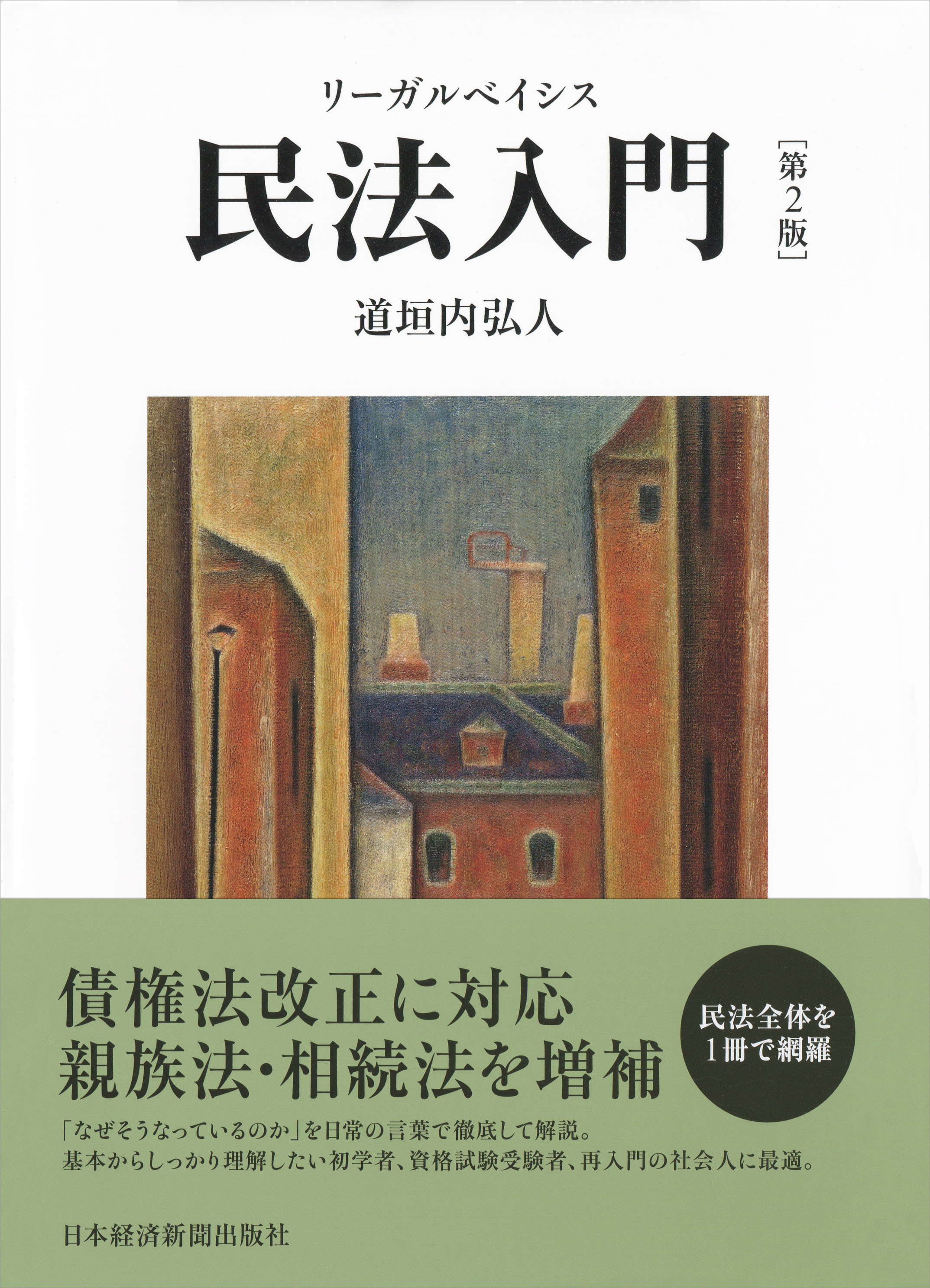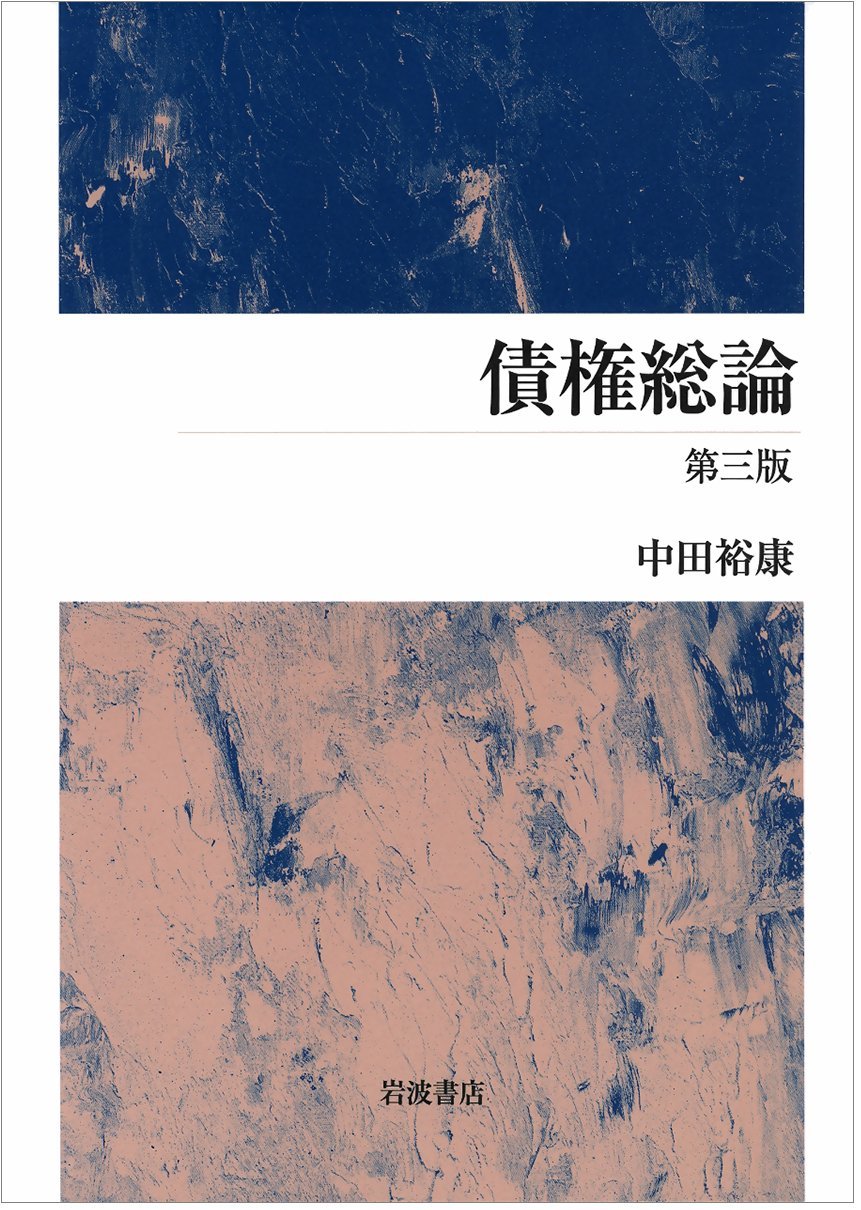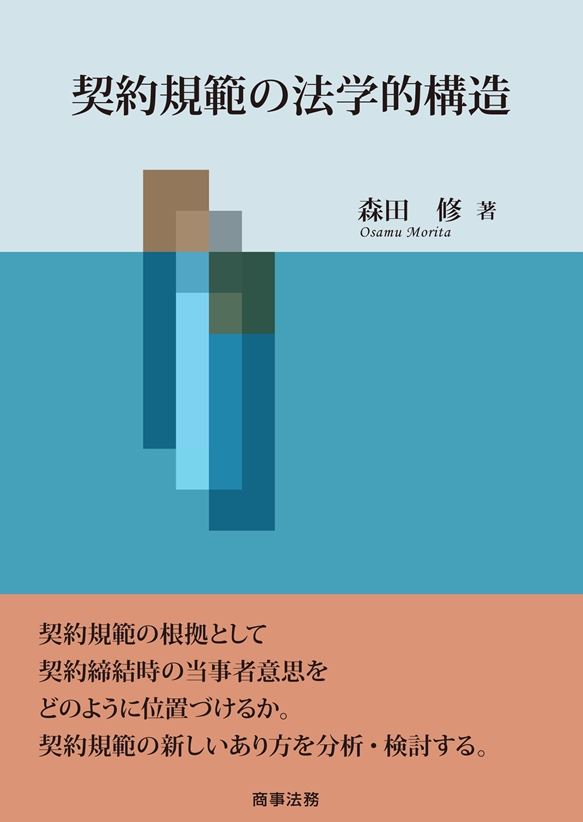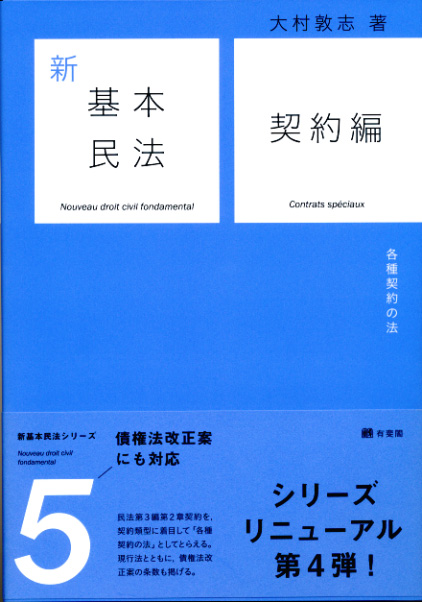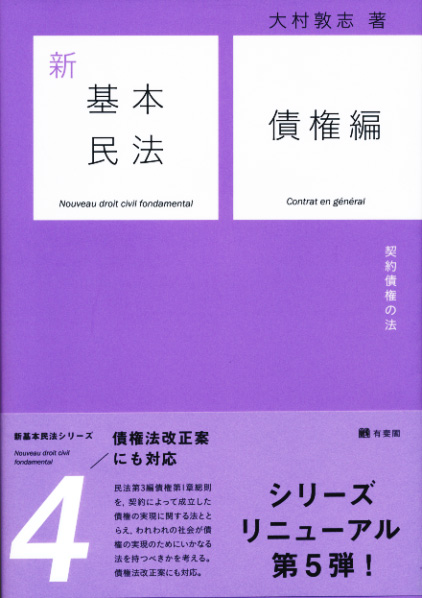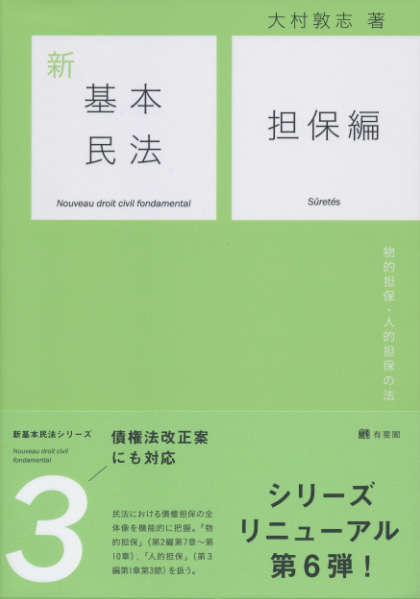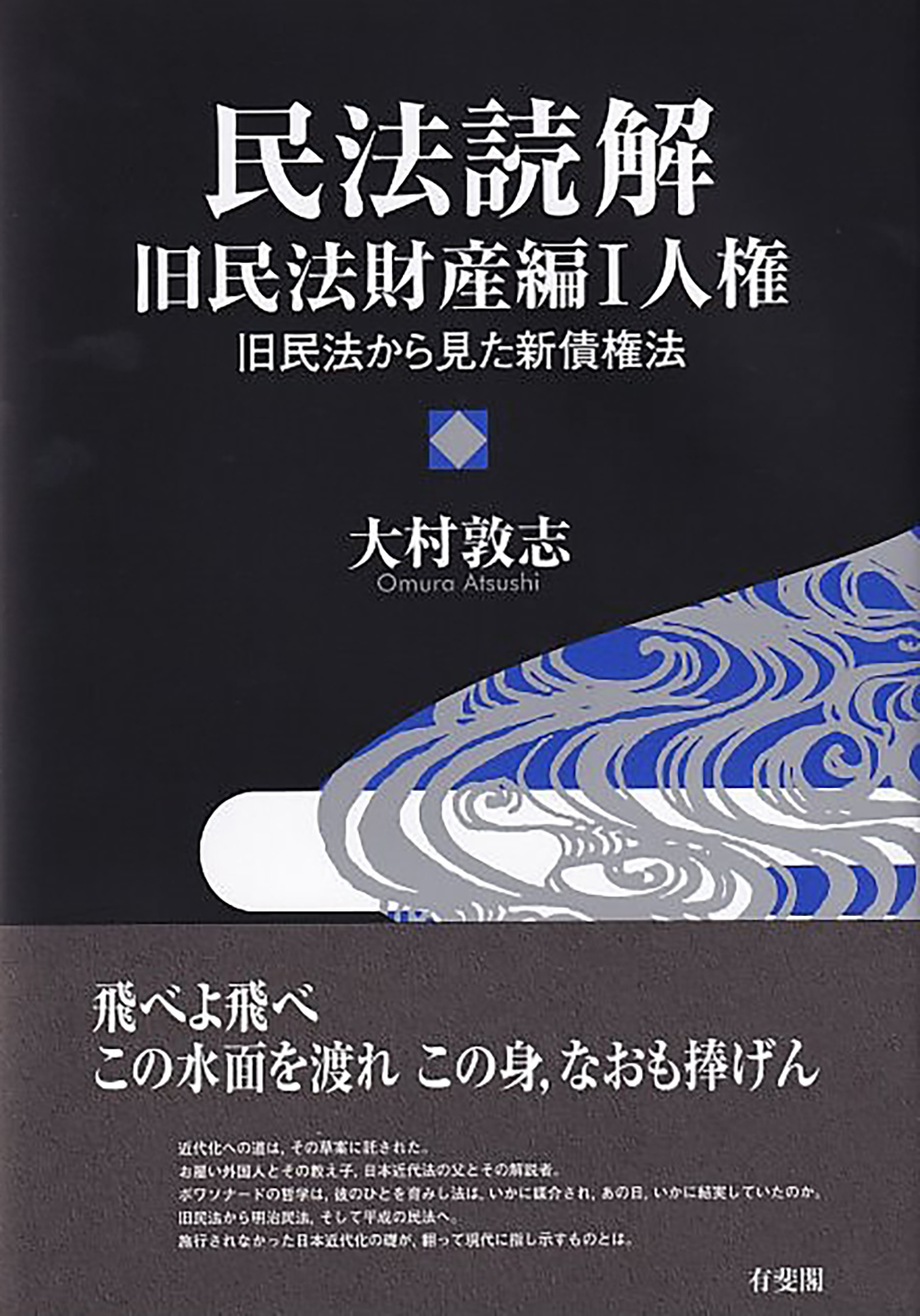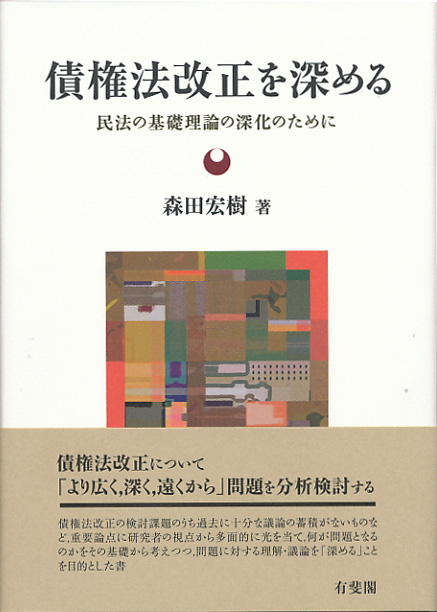
Title
Saiken-hō kaisei o fukameru (Deepening Reform of the Law of Obligations - To deepen the basic theory of the Civil Code”)
Size
454 pages, A5 format, hardcover
Language
Japanese
Released
August 30, 2013
ISBN
978-4-641-13656-4
Published by
Yuhikaku Publishing
Book Info
See Book Availability at Library
Japanese Page
For reform to the Civil Code in regard to the Law of Obligations, on March 31, 2015, a “Draft Bill to Reform Part of the Civil Code” (Cabinet Law No. 63) was submitted to the Diet; it was passed, and it came into effect on May 26, 2017. Deepening Reform of the Law of Obligations began as a series of essays in the magazine Hōgaku Kyōshitsu from April 2010 to March 2012; discussions had been ongoing since November 2009 at the Working Group on the Civil Code (the Law of Obligations) at the Ministry of Justice. After the series finished, the Working Group’s “Interim Proposal for Reform of the Civil Code (the Law of Obligations)” was published, and additional material was appended to the original Hōgaku Kyōshitsu series in order to cover this development. Together, the series and additional material were compiled to make up this book.
While the general rules of private law prescribed by the Civil Code provide a common conceptual framework for thinking about how a wide range of issues which arise in contemporary society should be resolved, the proposal for reform of the Law of Obligations included many points intended to rearrange the existing conceptual framework. However, unlike previous partial reforms of the Civil Code, the scope of issues examined in the proposal was exceptionally large, and these issues were interrelated in multiple complex ways. Many of the suggestions had not been subjected to a sufficient process of discussion and debate. In particular, if the conceptual framework itself is to be rearranged, one would expect the required meticulous attention to be given to those points at issue which are interrelated; however, in the discussions on the reform proposal, it is apparent that some issues were discussed from a merely one-sided, partial perspective. Furthermore, while the development of precedent up to that point—along with the major legal principles and standards forged in the process of theoretical debate—should have formed a foundation for examining the reform proposal, these have not been properly explained in the textbooks of recent times, and so the reform proposal was discussed without recourse to such texts; it cannot, thus, be said that the proposal was discussed adequately. In view of these problems, Deepening Reform of the Law of Obligations takes as its objective a “deepening” of the reader’s understanding and of the debate – by covering from a set, consistent viewpoint the major issues involved in reform of the Law of Obligations that require our attention, shining light on them from a wide range of angles, and thinking through – from the ground up – just what the issues involved actually are.
The author’s guide and mentor, the late Professor Eiichi Hoshino, used to explain that while the jurist and the legal practitioner generally engage in legal practice together in the study of positive law – the direct objective of which is to suggest reasonable conclusions on issues useful in legal practice, such as the legislative proposal and the interpretation of positive law. However, the true work (if such a thing exists) of the scholar does not lie in legal practice, but rather in undertaking fundamental work for the sake of good legal practice, and that the duty of the jurist qua scholar lies in examining the issues “more broadly, more deeply, and from a greater distance.” This publication is not intended as a commentary on events ongoing in the reform process, but rather as an analytical examination of the debate on the reform of the Law of Obligations, undertaken by a researcher of the Civil Code working from Prof. Hoshino’s viewpoint.
This publication, then, offers a meaningful run-through of the foundational theory of the Civil Code in thinking through questions such as why the reform provisions for the Civil Code (the Law of Obligations) turned out as they did, and in asking how these reform provisions should be interpreted and understood. One hopes that this volume’s thoroughgoing coverage of these issues will offer the reader a wealth of knowledge and insights.
(Written by MORITA Hiroki, Professor, Graduate Schools for Law and Politics / 2018)



 Find a book
Find a book


